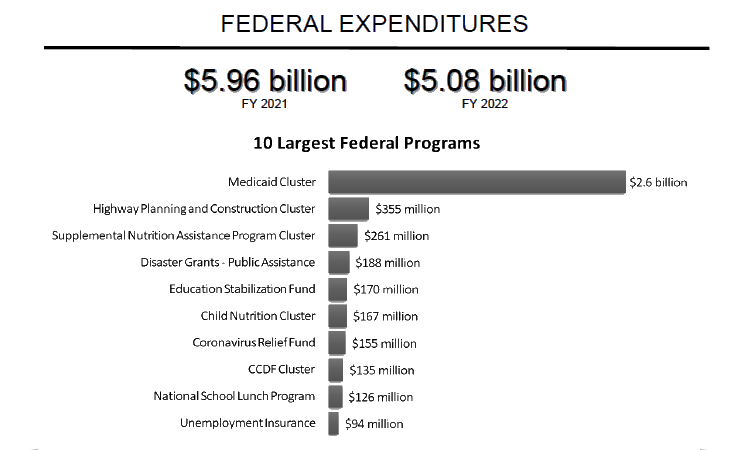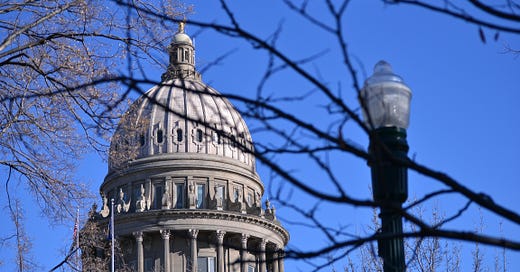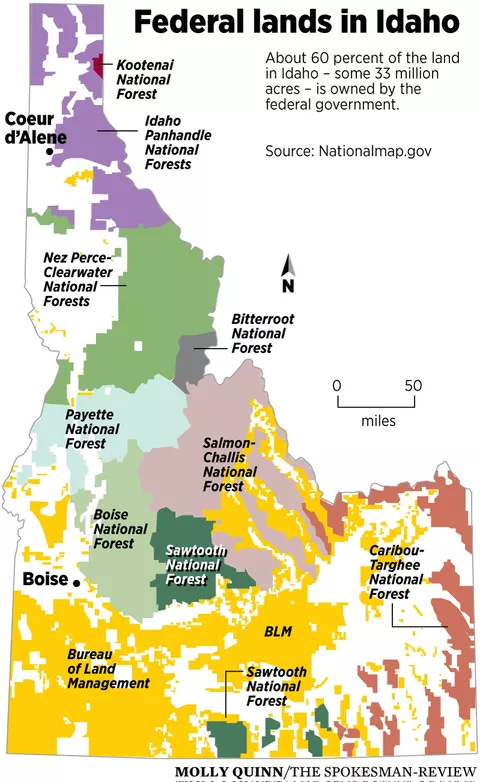Prior to American independence, the thirteen colonies were equal under the British Crown. Coming out of the Revolution, each one saw itself as a sovereign and independent realm. They retained much of that sovereignty under our first attempt at a national government, the Articles of Confederation. The Articles were essentially a loose alliance more akin to the United Nations than a real federal government. The Constitution that replaced the Articles attempted to balance the need for a strong central government with the innate sovereignty of the states.
Unfortunately, every evolution of the American system has resulted in more centralized power. The Civil War violently crushed any ideas states once had about peacefully leaving the union. The New Deal, Great Society, and Obamacare each moved the federal government further into contact with the lives of individual Americans. Programs like Medicaid and the Affordable Care Act were technically voluntary for states, but there was too much pressure for even red states to realistically resist.
Today, the federal government not only owns and manages more than half the land in our own state but they also contribute more than 40% of our budget. This allows Governor Little and the Legislature to expand the state bureaucracy with seemingly no limiting factors while still maintaining or even cutting state tax rates. Yet this course is unsustainable. Our national debt just crossed $33 trillion, a number so large as to be basically meaningless. We are mortgaging the future of our country so that the Idaho Department of Health and Welfare can continue giving money to LGBTQ+ events and subsidizing drug addicts.
Of course, the biggest problem with taking federal money is in how it gives DC the authority to regulate what we do in Idaho, beyond their constitutional purview. At the beginning of the year I wrote about how two new Idaho elected officials — State Superintendent Debbie Critchfield and Attorney General Raúl Labrador — responded in opposite ways to the idea of federal jurisdiction over Idahoans. Critchfield urged school districts to adopt a controversial transgender bathroom policy lest the federal government bring investigations and lawsuits, while Labrador said that such policies likely violated Idaho law, and that he would fight them.
The reason we are in the predicament we are today is because we have had too many Critchfields and not enough Labradors. Too many Idaho leaders have traded our sovereignty for federal cash, because it’s the path of least resistance. The feds come to our elected leaders with dump trucks full of money that they can play with so long as they agree to a few stipulations here, a few regulations there. Those strings add up, though, and before long, Washington DC is supplying nearly half our state budget and micromanaging our state agencies, our public schools, and our very lives.

It wasn’t supposed to be this way. The Tenth Amendment to the US Constitution reserves all powers not explicitly granted to the federal government to the states. That’s a little more than a sick joke in the post New Deal world.
Something that can’t go on, won’t, and our current course is unsustainable. To fix it requires leaders with the courage to say no to the federal handouts and convince Idaho voters that it’s better for us to go our own way rather than be tethered to an increasingly corrupt and bankrupt federal government.
They could start small: Right now the federal government provides approximately $300 million to public schools for free lunches and the Education Stabilization Fund. What if Idaho covered those costs instead? Remember that Governor Little set aside $400 million for public schools when he called a special session last year. Why not use that to drive the feds and their deviant regulations out of our public school system? From there we could start evaluating other federal programs such as Medicaid.
This is doable. Call your legislators and ask them what they’re doing to reduce federal influence in Idaho. If you don’t like their answers, then maybe that’s a sign for you to run for office yourself. We need people in the Legislature who will do what is right, rather than what is easy.





There are many things Idaho could do for free to increase its sovereignty:
Some states have a state defense force that answers to the governor, not to the president. It serves the state's needs even when the president sends the state's National Guard elsewhere. Utah has a law that allows the state to transfer the Utah National Guard's assets to the Utah state guard, which the president has no authority over.
Texas convinced the feds to locate some of fedgov's gold in their state.
North Dakota has their own state bank that doesn't have to obey the feds like private banks do.
The North Dakota House of Representatives passed a bill to create a process for the state legislature to forbid state government or local government cooperation with federal actions that violate the US Constitution.
Idaho could nullify certain federal violations of the US Constitution in more aggressive ways than that even.
These ideas poll well. There are links to the poll results in this post: https://secession.substack.com/p/poll-66-of-texas-voters-want-to-secede
Agree “too many Critchfield’s not enough Labradors.”